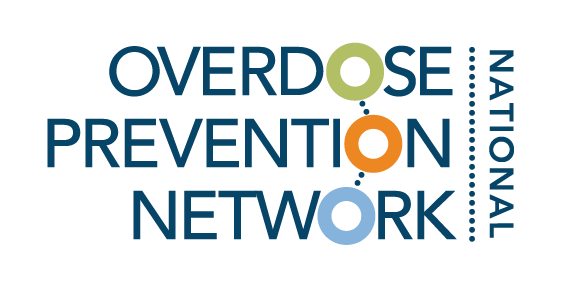
Resource Library
Toolkits, guides, and other resources vetted by experts in overdose prevention.
Filter by category and tags, or search by keyword (ex. COVID-19, harm reduction).
Evaluating the impact of naloxone dispensation at public health vending machines in Clark County, Nevada
The research presented in this article examines the extent to which naloxone dispensation at public health vending machines (PHVMs) was associated with changes in opioid-involved overdose fatalities in Clark County, Nevada.
Racial Disparities in Access to Medication for Addiction Treatment
In this study, CA Bridge identifies racial disparities in accessing medication-assisted treatment (MAT), specifically looking at buprenorphine, in California.
Equity and Harm Reduction for Communities of Color
This tool created by CA Bridge focuses on reducing harms related to substance use in communities of color.
Gold Standard Podcast with Dr. Sue
National Harm Reduction Coalition’s Medical Director Dr. Kim Sue joins various guests from programs across the country to highlight the importance of low-barrier access to medications for opioid use.
Readiness Assessment for Harm Reduction Vending Machines: A Decision Making Tool for Organizations and Communities
When considering a strategy like harm reduction vending machines it is critical to understand community context and to get buy-in from staff, key community stakeholders, partners, and program participants. To help with this, Bloomberg American Health Initiative fellows Callie Kaplan, Zach Kosinski, Nicole Barnes and Erin Russell, under the guidance of Dr. Susan Sherman, created a readiness toolkit to support agencies, community-based organizations, and advocacy groups to make informed decisions about the use of harm reduction vending machines in their communities.
Wellbeing Wednesdays - Episode 7: "Advancing Health Equity"
Hear Rochelle P. Walensky, M.D., MPH, director of the Centers for Disease Control and Prevention (CDC), and Chuck Ingoglia, the National Council’s president and CEO, discuss the state of health equity in America, barriers to treatment, what equitable systems of care look like and more.
Pregnancy and Substance Use: A Harm Reduction Toolkit
This toolkit was created for supporting pregnant and parenting people who use drugs, their loved ones, and their service providers. This toolkit was written in collaboration with the National Hard Reduction Coalition and the Academy of Perinatal Harm Reduction.
Addiction in Emergency Medicine and Acute Care Podcast
A practical and evidence-based podcast on how to think about, diagnose, and treat substance use disorders in the Emergency Department and Acute Care
Summary Brief of Towards Equity-Driven Whole Child Health and Wellness
This brief provides a condensed version of the guide created with Youth Opioid Response California and California AfterSchool Network, to provide information on various strategies co-designed across sectors to support substance use prevention and creating hubs at schools and other community sites to promote whole child, whole family, and whole community health and wellbeing.
California’s Golden Opportunity Post-Convening Update & Materials
On Friday, September 16, 2022, the California AfterSchool Network (CAN) successfully convened CA practitioners and educators in California’s Golden Opportunity: Promoting Child & Community Wellness Through Cross-Sector Expanded Learning Partnerships event. This culminating virtual event of the Whole Child Health & Wellness Community of Practice, was funded by Youth Opioid Response (YOR) California. The purpose of the virtual event was to create awareness about California’s Golden Opportunity for multi-sector partnerships with California’s Expanded Learning Programs that promote health, and mental health, and increase access to substance use intervention and treatment for children, youth, and families. Resources from the convening can be found here.
California AfterSchool Network
"The California AfterSchool Network (CAN) is an organization that exists to make a difference in the health and well-being of children, youth, their families, and their communities by strengthening access to high-quality Out-of-School Time (OST) programs.
Statewide System of Support for Expanded Learning
California has a system of support for expanded learning (SSEL). This webpage has the most current contacts for each region in California.
Fentanyl Awareness Pamphlet in Spanish
The Butte Glenn Opioid Safety Coalition created a pamphlet that highlights fentanyl awareness and resources.
Fentanyl Awareness Pamphlet in English
The Butte Glenn Opioid Safety coalition created a pamphlet that highlights fentanyl awareness and resources.
Towards Equity-Driven Whole Child Health and Wellness
This brief provides a condensed version of the guide created with Youth Opioid Response California and California AfterSchool Network, to provide information on various strategies co-designed across sectors to support substance use prevention and creating hubs at schools and other community sites to promote whole child, whole family, and whole community health and wellbeing.
California's Golden Opportunity
In this blog post by Jeff Davis, the Executive Director of California AfterSchool Network, speaks on the opportunities to partner with expanded learning programs in California to support the whole child, whole family, and community wellness.
Public Safety-Led Community-Oriented Overdose Prevention Efforts (PS-COPE) Concept Paper
This PS-COPE Concept Paper is a new approach to community-oriented overdose prevention and response in Black, Indigenous, and People of Color (BIPOC) Communities. It is a supplemental resource that describes the cross-cutting principles of trauma-informed, recovery-oriented, procedurally just and PS-COPE approaches, and how each of these frameworks brings unique value to working within BIPOC communities.
Public Safety-Led Community-Oriented Overdose Prevention Efforts (PS-COPE) Toolkit
The Public Safety-led Community-oriented Overdose Prevention Efforts (PS-COPE) Toolkit is a new approach to overdose prevention and response for Black, Indigenous and people of color (BIPOC) communities. It combines three proven models to enhance overdose prevention and response: trauma-informed care, recovery-oriented systems of care and procedural justice.
School-Based Harm Reduction with Adolescents: A Pilot Study
This journal article reviews the impact of a pilot study on the use of the Safety First real drug education with high school freshman and these findings had significant implications on reductions of overall substance use and increase in harm reduction in these freshman students.
Trauma-Informed Approaches Toolkit
This toolkit is intended to provide foundational information, language, and an introduction to tools and assessments for agencies and providers, both those who provide direct services and funders.











